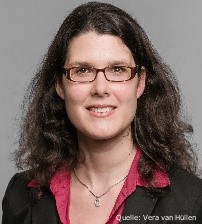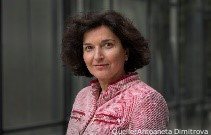Die Europäische Union als Krisenmanager
Während die Ursprünge europäischer Integration vor allem wirtschaftlicher Natur waren, ist die heutige Europäische Union (EU) eine Regionalorganisation mit 28 Mitgliedern, die auf einer Vielzahl verschiedener Politikfeldern tätig ist. Hierzu gehören neben der Wirtschafts- und Währungspolitik auch die Landwirtschaftspolitik, die Sozialpolitik, die Umweltpolitik, die Strukturpolitik, Zusammenarbeit in den Bereichen Inneres und Justiz und die Außen- und Sicherheitspolitik. Der Fokus dieser dreiteiligen Vortragsreihe liegt auf der Rolle der EU in aktuellen Krisen, die verschiedenste Politikbereiche tangieren und wichtige außenpolitische Implikationen haben. Die Vorträge beleuchten, wie die EU in aktuellen Konflikten in Nordafrika und den östlichen Nachbarstaaten agiert und wie sie ihren Umgang mit der Flüchtlingskrise gestaltet. Dabei stehen eine Reihe von Fragen im Mittelpunkt: Wie haben sich die Krisen entwickelt und wie reagiert die EU? Wann gelingt es der EU und ihren Mitgliedern mit einer Stimme zu sprechen? Wie wirkungsvoll ist die EU als Krisenmanager? Was kennzeichnet die Nachbarschaftspolitik der Europäischen Union und wie wirkt sich das auf den Umgang mit dem „Arabischen Frühling“ aus? Wel-che Instrumente hat die EU, um in der Ukraine Krise zu agieren? Wie regiert die EU auf die Flüchtlinge an ihren Außengrenzen? Und schließlich: Welche sicherheitsbezogenen Implikationen hat die Flüchtlingskrise für die EU?
Montag / 30.05.16 / 20 Uhr c.t. / HS 1199, KG I
Anfang 2011 hatten die massenhaften Proteste im Nahen Osten und Nordafrika große Hoffnungen und Erwartungen geweckt – auch, was den internationalen Einfluss der EU auf Demokratie und Menschenrechte angeht. Jedoch scheint die EU einmal mehr hilflos den politischen Entwicklungen in der Region gegenüber zu stehen. Wie steht es um die EU als internationale Akteurin im Lichte des „Arabischen Frühlings“? |
Mittwoch / 01.06.16 / 20 Uhr c.t. / HS 1098, KG I
As former Ukrainian president Yanukovich refused to sign the EU-Ukraine association agreement in November 2013, this event not only ushered a chain of developments that led to the annexation of the Crimea and instability in Ukraine, but signaled a miscalculation on the EU’s part that could be traced back to the successes of the 2004-2007 enlargement. The early 2000s were a period when EU transformative power and conditionality appeared to achieve great improvements in domestic reforms in candidate states. By contrast, in Ukraine, elites do not appear to respond in the same way to the EU’s incentives and conditions. The reasons behind this are complex and can be partially attributed to geopolitics, but it is not only external contexts that have changed. Some years later, the EU has drawn some lessons from the indirect competition with Russia in the region, but still tends to overestimate its attractiveness to neighbours. It is still unclear whether the emphasis on even stronger reform conditionality and adoption of EU rules in the Association agreement can ensure elite support for reforms in a country such as Ukraine. This question cannot be answered without deeper understanding of the oligarchic dominance of Ukrainian economy and political life and a political economy analysis of the response of the oligarchic class to EU conditionality. |
Montag / 04.07.16 / 20 Uhr c.t. / HS 1199, KG I
The main aim of this lecture is to analyze the extent and the modalities of the securitiza-tion of asylum-seekers and refugees in the European Union (EU). There is a commonly held view in the existing literature that migrants and asylum-seekers have been securit-ized in the EU, that is, have been socially constructed as security threats. This lecture puts forward a more nuanced argument by analytically distinguishing the asylum policy of the EU from its policies on migrants and border controls on the basis of the literature on ‘venue-shopping’ and policy venues. It also makes a distinction between the EU asylum policy and the EU’s policy towards asylum-seekers and refugees. |




